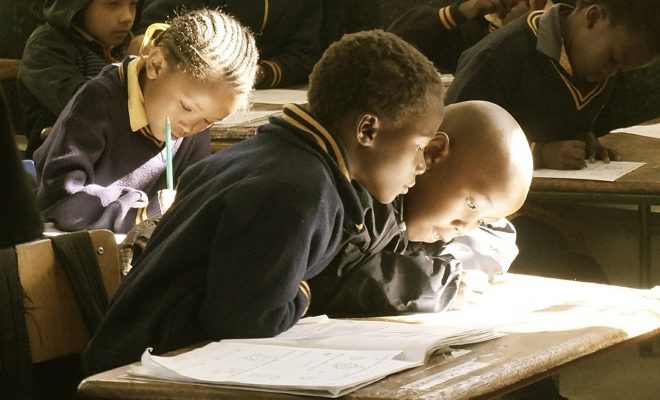Pass or Fail: A New Plan for K-12 Success

In this multi-part series, I provide a dissection of the phenomenon of retention and social promotion. Also, I describe the many different methods that would improve student instruction in classrooms and eliminate the need for retention and social promotion if combined effectively.
While reading this series, periodically ask yourself this question: Why are educators, parents and the American public complicit in a practice that does demonstrable harm to children and the competitive future of the country?
The practice of passing students to the next grade or holding them back is nothing new. In the often cut-and-dry world of K-12 academics, the fate of a student is based on a shockingly unsophisticated system. The K-12 system seems to be oblivious or indifferent to the impact this pass/fail system has on the lives of the children it affects. Even though all available indices show they are the worse for it, students continue to be promoted by age with no concern for subject mastery or held back regardless of age when metrics are not met. Such irrationality demands an explanation. Why are educators, parents and the American public complicit in a practice that does demonstrable harm to children and the competitive future of the country?
Although this series is about the evolution of pass-fail systems in our schools, it does more than summarize the evolution of retention and social promotion in the American public education system. It’s more important message is a description of the benefits of individualized learning and an explanation of why so many Americans are oblivious to them. The sad truth is that neither retention nor social promotion have been thought out. They were both simply allowed to happen, paths of least resistance on the journey from the one-room schoolhouse of the historical past to the high pressure, the age-grade system of today.
After critiquing the current pass-fail system, this series goes on to describe the many different methods that would improve student instruction in classrooms and eliminate the need for retention and social promotion if combined effectively. Modified standards, better teacher training, multiple approaches to assessment and a whole new outlook on K-12 classroom design are just a few of the points emphasized and encouraged in the latter half of the series. Replacing the pass-fail system with something equally rigid and simplistic will not improve the public education system in any meaningful way. What is needed is an entirely new approach that is thoughtfully assembled, piece by piece, from the ground up.
The American education system started with the iconic one-room schoolhouse, where students of all ages learned together in a common room. While quaint by today’s sophisticated standards, those rooms did, in fact, represent great educational equalizers. In this light, it is once again important to remind ourselves why they were replaced by a more rigorous, age-based system.
The statistics show a steeply rising trend in both social promotion and retention over time. Clearly, these facts show that the underlying causes of poor academic performance have simply been papered over with reflexive pass-fail standards. Pass-fail systems have been in place for decades without ever being subjected to serious review. What would the K-12 system look like if these policies were eliminated? If retention and social promotion are truly designed to help the individual student, why are students doing so poorly?
This series attempts to answer these questions by examining the actual impact of pass-fail strategies and the harm they do to individual students, their communities, and the U.S. workforce. Unemployment and public assistance is especially prevalent among high school dropouts, who are disproportionately comprised of students who were socially promoted or held back.
This series starts with the admission of failure for the existing K-12 system and moves on to describe and promote concrete alternatives to retention and social promotion. Many of these alternatives consist of various types of targeted intervention for struggling students. Special attention has been given to realistic, cost-effective interventions that can be implemented in public schools with minimal disruption to other students.
To transform the U.S. K-12 system from its current reliance on a pass-fail system will require the integrated implementation of all of the strategies I advocate in this blog series. The solution must be as multi-faceted as the problem.
In light of the multiple problems affecting the K-12 system, I encourage the reader to consider a six-point strategy for eliminating the pass-fail system and for qualitatively improving the efficacy of the U.S. public education system. Click here to see those points.






